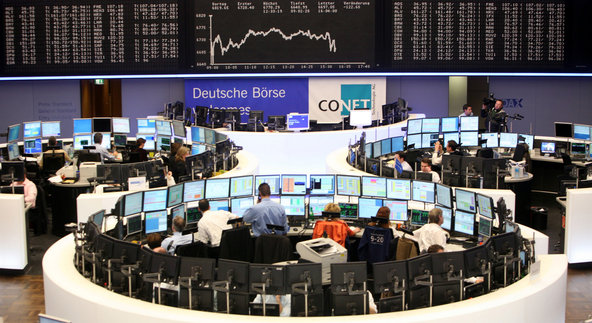However, the second-quarter net loss of €280 million, or $373 million, represented a significant improvement over the €1.6 billion loss the bank posted a year earlier.
“The report confirms the commitment and effectiveness of the priority actions that we undertook, the improvement of the bank’s financial profile and its operating costs,” the chief executive, Fabrizio Viola, told investors in a conference call. “We now need to make the bank solid and act so that the market perceives it.”
The bank said that it had reduced its operating costs by 10.5 percent from a year earlier and that it had already closed 360 of the 400 branches that it plans to shut down by September, cutting 1,660 jobs in the last year. A quarter of the bank’s managers have left since last summer, the chief financial officer, Bernardo Mingrone, said.
Despite the bank’s progress, economic conditions had a “significant impact” on its results, Mr. Viola said, including an increase in loan-loss provisions.
The bank has troubles that extend beyond the local economy. Last month, in a letter sent to the Italian economy minister, Fabrizio Saccomanni, the European competition commissioner, Joaquín Almunia, expressed concerns about the viability of the bank’s restructuring plan. The European Commission must give final approval to the €4.1 billion bailout that Monte dei Paschi has received from the Italian government.
On Wednesday, Mr. Viola declined to comment on what he called “such a delicate issue,” but he said that the bank was ready to make any needed improvements to the business plan.
Since January, Monte dei Paschi, the world’s oldest operating bank, has been caught up in storm that has led to the disclosure of €730 million in losses on derivatives transactions entered into by the previous management.
Lawsuits have been filed against the bank’s former executives, as well as against Deutsche Bank and Nomura, which signed the deals responsible for most of the losses.
Last week, the scandal widened when prosecutors in Siena announced that JPMorgan Chase was suspected of wrongdoing for its role in a 2008 transaction that helped Monte dei Paschi raise the funds it needed to acquire a regional bank, Antonveneta. The €9 billion takeover — at what is widely regarded as an inflated price — set off the financial strains that contributed to the bank’s decision to seek the state bailout earlier this year.

Article source: http://www.nytimes.com/2013/08/08/business/global/crisis-hit-italian-bank-records-another-loss.html?partner=rss&emc=rss

